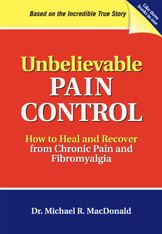
HOW TO OVERCOME SUSPICION OF PEOPLE IN PAIN
This is not really as hard as is may seem. The solution is to take a closer look at the evidence. Here is how you can do this.
First, let’s take a closer look at the problem.
For people in the health care, legal or insurance professions, there can be much confusion and suspicion. This is also true for employers, family and friends. Sometimes, our thinking can go like this.
Why are things so bad for this person? I don’t get it. I have seen people with a lot worse injuries that aren’t complaining as much and don’t seem to have as much pain. Why is this person with a relatively simple injury and a relatively minor accident suffering so much? It doesn’t make sense.
Underneath this line of questioning may lie a note of suspicion. You may wonder whether this person’s injuries and pain are as real, or as physical, as the more serious and obvious cases.
If you are doubting the legitimacy of a person’s experience of pain and injury, there is a simple check you can do. You can find out about the losses that the person has incurred, since the onset of their injuries or illnesses. If they have lost work or income, especially month after month, or if there have been significant stresses on their spouses or children, these are strong clues to the reality of their physical pain and suffering.
This is how the Workplace Safety and Insurance Board (Ontario, Canada) checks on the legitimacy of chronic pain. If an injured worker shows evidence of persistent pain and marked life disruption, they are entitled to chronic pain disability benefits.
This is a simple reality check. Behind this simple check is the assumption that people don’t incur losses if they can avoid them. No sane person would subject themselves (and their families) to losses of work and money, month after month, if they could get better and return to work. Common sense right?
This kind of reality check is a lot less expensive and intrusive than hiring private investigators.- and a lot less damaging to all parties than cutting off benefits.
And by the way, the presence of private investigators in the lives of injured people tends to make them more anxious and depressed, experience even more pain and ultimately become more disabled. Insurers’ (and claimants’) costs just keep rising with this option.
A simple reality check and a little common sense can save everyone a lot of money and heartache. Let’s let the light of evidence guide us.
* * *
Thank you for reading. Thank you to Stephen Leonardi (image above) and Rachel Walker (image below, both from Unsplash) for your creative work.
Please feel free to steal, share and join our growing list of subscribers.
Mike




